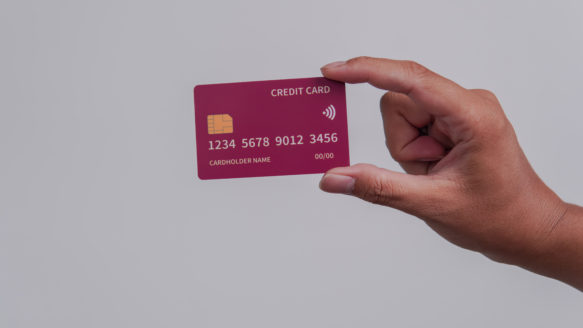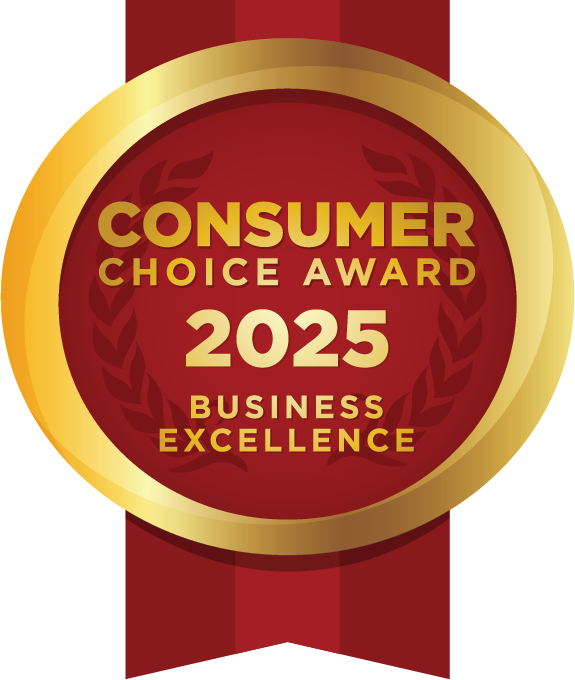
When One Job Isn’t Enough: The Toll of Side Hustles on Struggling Albertans
Side hustles have become the go-to “solution” for many Albertans struggling to make ends meet. With inflation driving up the cost of groceries, gas, and rent, it’s no surprise that more than one in five Canadians now have side jobs to bring in extra cash. Side hustles can be a lifeline when you’re trying to stay afloat — and for many Albertans, they’re the only reason the bills are getting paid. There’s no shame in doing what you need to do. But here’s the part that doesn’t get talked about enough: relying on side gigs as your main budget or debt strategy can slowly wear you down without truly getting you ahead.
Think about it — you work all day at your regular job, then spend evenings and weekends driving for ride-shares, doing a bookkeeping side hustle from home, or juggling other side jobs to make extra money. You hope these hustles will finally help you pay off your debt, but instead, you end up exhausted, on edge, and barely seeing your family. The extra money comes in, but the debts and bills keep going out. Side hustles can feel like running on a treadmill: you’re putting in the sweat but not really getting ahead.
Why So Many Albertans Are Trapped in the Side Hustle Cycle
There’s a reason it feels like everyone’s hustling these days. Stagnant wages and an unpredictable economy have created a perfect storm. Alberta is facing serious financial pressure — with a high cost of living and a projected multi-billion dollar budget deficit — leaving many of us feeling like side gigs could be a great way to increase income so we can keep up.
In fact, in 2024 it was reported that 28% of Canadians had a side hustle. We’re taught that picking up a second job or starting a good side hustle is something to admire — a sign that you’re hardworking and proactive.
But hustle culture has a dark side. When you’re struggling to cover basic expenses and make minimum payments on your credit cards, the pressure to grind only grows. Economic uncertainty breeds fear, and side gigs feel like a safety net.
The Real Cost of Relying on Side Hustles
At first, the extra income helps — maybe we’re able to manage an extra $500 towards paying down our debts each month. But working more doesn’t always lead to financial stability. A lot of Albertans are putting in extra hours because they’re doing whatever it takes to stay afloat — and that’s incredibly resilient. But even with that extra effort, many still find themselves falling behind.
It turns into a cycle: everything costs more, so you hustle more. But the more you hustle, the more burned out you get — which can lead to mistakes at work, missed payments due to disorganization, or health issues, putting you right back in financial trouble.
And despite all this effort we are putting in, our credit card balances seem to budge only slightly. This is so common. What good is a “good side hustle” if it’s slowly breaking you?
Are Side Hustles Taking More Than They Give?
Let’s bust another myth: Many side gigs aren’t the goldmines they’re hyped up to be.
The internet’s full of ideas for side hustles, but once you dive in, you realize the market is crowded and the pay is low. And here’s the kicker:
- If you have to spend money to make your side gig work, it chips away at whatever small profits you’re earning.
- The time you spend working extra hours is time you’re not meal-prepping, budgeting, or even just keeping life organized — which can lead to more takeout, more spending, and a cycle that cancels out the gains.
We’ve been sold the idea that hustling more will solve everything. Side hustles promise freedom, extra cash, maybe even a chance to turn your passion into profit. But for many Albertans, it plays out differently: less time, more stress, and a nagging feeling that, despite working nonstop, you’re still somehow not doing enough.
Here’s the truth: You are not failing — the strategy is.
Why Your Debt Snowball Can’t Run on Gig Work Alone
If you’ve tried the debt snowball method — where you pay off the smallest debt first with any extra money you have, then roll that payment into the next debt — you know it can work. But only if you’ve got consistent extra cash to throw at it.
That’s where gig work gets messy. When your debt snowball depends on side hustle income — Uber driving, selling online, freelancing — it’s built on shaky ground. One month, you’ve got enough to make a big dent. The next? You’re too burned out, sick, or the demand just isn’t there. Gig work can be a helpful short-term boost — and it’s something many of us turn to for flexibility and extra cash. But when it becomes the foundation of a long-term debt plan, its unpredictability can make that progress feel shaky.
Increasing your income can absolutely be part of the solution — and our counsellors often explore that with clients. But for it to work, it has to be stable and sustainable across your full repayment plan. Not all side hustles are built for that.
So, if you’ve been trying to fuel your debt snowball with gig work and feeling like you can’t keep up, know this: the flaw isn’t you — it’s the plan. There’s a better way to tackle that debt without running yourself into the ground.
The Budget Strategy That Stops Burnout in Its Tracks
It’s time for a bold reframe: What if the real fix for your budget isn’t earning more — but making the money you already earn work harder? What if, instead of squeezing another few hours of work into your week, you squeezed more value out of the dollars you’ve already got?
Imagine this:
- Someone says, “I’ll pay you $20 if you bring your lunch from home today.”
- You’d probably say yes! You’d pack your lunch, eat it at work, and feel proud for earning that crisp twenty so easily.
- Guess what — you didn’t spend $20 buying lunch, and that means you still have your $20. You paid yourself $20 just for making one lunch.
It’s a powerful way to look at your spending. Before you give up your free time or sleep to make more money, look at how your current money is being used. You might feel like your budget has no wiggle room, but small habits often add up to big dollars.
Take a look at some simple examples:
| Category + Example Spending | Monthly Cost (Weekly cost x 4) |
Yearly Cost (Monthly cost x 12) |
|---|---|---|
| Eating out for lunch ($20, 3x/week) |
$240 | $2880 |
| Streaming services (i.e., Netflix, Disney+, Spotify, cloud storage, etc.) |
$100 | $1200 |
| Buying two coffees a day ($6 total, 7 days per week) |
$168 | $2016 |
| Wine/vapes/cannabis, etc. (~1 per week) |
$60 | $720 |
| Phone upgrade every 2 years without keeping your old phone | $40 extra per month | $480 |
| Total | $600+ per month | Nearly $7,500 per year |
You could be grinding through a second job, burning out, spending more just to cope — or you could be pocketing serious savings without clocking another hour. And that’s just the start. Once you factor in big-ticket costs like that second car you could technically do without, and the high-interest debt balances you’ve got, the money you can reclaim gets even wilder.
“I’ll pay you over a thousand dollars a month if you…”
… take transit or carpool to work instead of the second vehicle with its payments, insurance, and maintenance, or
… spend one hour a week planning your meals before grocery shopping to stop food waste and last-minute takeout, or
… cancel the memberships you keep meaning to use but never do.
… quit smoking, cut back on alcohol, and stop grabbing snacks every time you fill up on gas.
… stay away from shopping on your phone when you’re bored, and steer clear of those “just looking” aisles — you know, the ones that somehow cost $200 😉
None of these are rules — they’re just examples of a simple line you can say to yourself when you’re choosing not to spend. Your list might look different. Maybe you love your daily coffee or refuse to give up your second car — and that’s okay. The point isn’t to cut everything. It’s to take an honest look at what’s truly important to you… and what you’re ready to let go of.
The money’s there — it’s often just hiding.
The Real Cost of Debt and the Alberta Program That Can Cut It
Carrying debt is expensive — and exhausting. If you owe $30,000 on a credit card with 26% interest, that’s nearly $7,800 a year just in interest. Shift that same debt to a 5% fixed rate through the Orderly Payment of Debts (OPD) program in Alberta, and your annual interest drops to around $1,500. That’s $6,300 back in your pocket — without working extra hours or adding a side hustle.
That’s what OPD does. It’s a government-backed debt repayment program offered only by Money Mentors in Alberta. It consolidates your unsecured debts (like credit cards and payday loans) into one monthly payment with:
- A fixed 5% interest rate — locked in, no surprises
- Legal protection from wage garnishment and creditor calls
- A path to be debt-free in 5 years or less
- No hidden fees, ever
And yes — you still pay your debts back in full. But now it’s on your terms, with breathing room.
Now, OPD might sound like a dream come true — and for many, it has been — but it’s also important to know if it’s the right fit for your situation. For example, OPD only covers unsecured debts (like credit cards, personal loans, lines of credit, etc.), not your mortgage or car loan. You also need enough income to make that single monthly payment (so it’s for people who can pay their debt with some adjustment, not for those with absolutely no income at all). If you’re curious about the specifics, you can learn more about how OPD works or speak to an Certified Financial Counsellor by giving us a call.
Choose Rest Over the Grind — You’ve Got Options
Burnout isn’t a strategy. Rest can be — especially when paired with the right debt relief plan. You’ve already got enough on your plate. Taking on more work, more hours, or more side hustles might feel like the only way out — but it can actually make things harder. What if, instead of adding more, you gave yourself permission to do less — and let a proven plan do the heavy lifting?
You don’t necessarily need another gig. You need a plan.
If you’re feeling stuck, here’s a good place to begin:
- Barely surviving? → Speak with an Certified Financial Counsellor for free support and a customized plan.
- Skeptical but curious? → Read a real Alberta success story and see what’s possible.
- Ready to get off the hamster wheel? → Learn how OPD works and whether it’s right for your situation.
Sometimes, The Hard Part Isn’t Asking for Help — It’s Believing You Deserve It
It might feel like the side hustle grind you’re in because of debt is all your fault — but it’s not. Life is hard, and most of us were never taught how to handle money in a world that makes it really tough. You’ve been doing your best with what you know. The good news? You don’t have to figure this out alone. There’s a better way to move forward — and it starts with one simple step.








